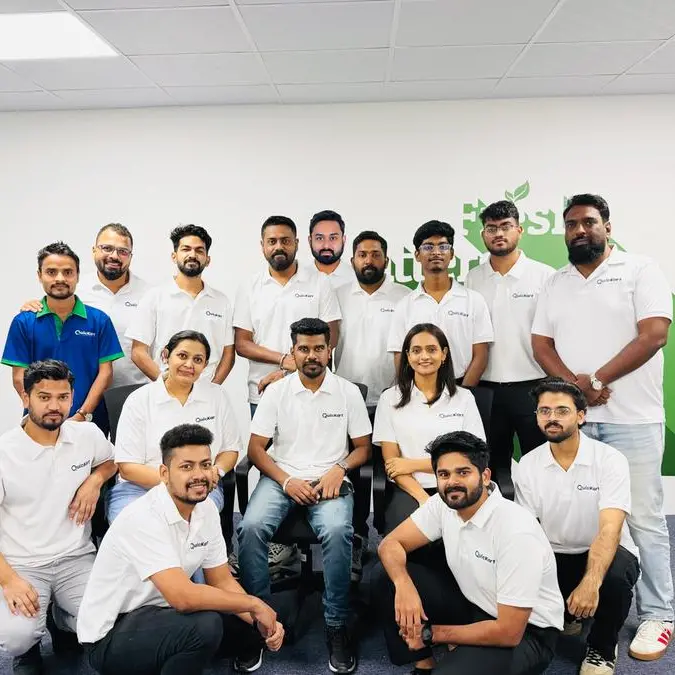PHOTO
The survey results and the conversation focused on how AI is shaping the future of work and HR’s strategic role in this dynamic environment.
Dubai, UAE: SHRM today launched a pioneering research report titled “HR Priorities with AI in the Workplace | MENA Perspectives 2025” offering critical insights into the evolving role of HR in an era defined by artificial intelligence (AI) and advanced technologies. The findings, presented at a in-person hybrid event at the Palm Atlantis, Dubai – UAE, attended by elite HR professionals, business leaders, and technology experts, highlight the pressing priorities for HR as organizations prepare for 2025 and beyond.
SHRM report examines how AI is reshaping core HR functions—from talent acquisition and employee engagement to workforce planning and decision-making—while spotlighting the strategies HR leaders must adopt to successfully navigate these changes.
Dr. Mohamed Abdullatif Khalifa, Director General of the Department of Human Resources, Government of Ras Al Khaimah, said: “HR department of RAK is poised to work with international HR Leaders like SHRM to bring important data points on how AI is changing the landscape of HR and organizations. We are glad to extend our support and resources to such initiatives from the forefront, he emphasized.”
“HR is at the forefront of one of the most significant workplace transformations in modern history,” said Achal Khanna, [CEO- SHRM East] at SHRM. “As artificial intelligence becomes integral to business operations, the role of HR evolves from traditional practices to data-driven, strategic decision-making. This research empowers HR professionals to anticipate and act on the profound shifts that AI will bring.”
Key Research Findings:
- HR Priorities and Key Challenges: The report identifies Talent Acquisition & Retention, Employee Health & Well-Being, and Talent Development (including managing performance) as top HR priorities over the next two years. It also speaks in parallel of internal budgetary constraints for HR projects and skill shortages (within HR teams) as key challenges in executing these priorities.
- Impact of AI Adoption in HR: The report underscores the growing emphasis on analytics and learning & development as pivotal areas for AI adoption within HR across the region. Notably, it also highlights significant investment in AI-driven tools and technologies, particularly in recruitment, onboarding, and workforce planning. This reinforces the imperative for leveraging next-generation AI to optimize talent acquisition and ensure organizations continue to attract the right talent in a competitive landscape
- Hurdles in AI Implementation: Data privacy and cybersecurity remain paramount concerns across nearly all industries. Notably, respondents from the manufacturing and heavy industries sectors highlighted challenges in integrating AI platforms with legacy HR management systems. These issues underscore the complexity of modernizing HR infrastructure while safeguarding sensitive data.
- Readiness to Embrace and Leverage AI in HR: A notable 33.53% of organizations expressed confidence that their HR teams are well-prepared to lead the integration of AI into HR functions. Additionally, 43.35% of respondents identified digital literacy as the most critical skill for the future, emphasizing its importance in navigating the evolving landscape of HR technology and innovation
Key Pillars for HR in the Era of AI:
SHRM’s research outlines a roadmap for HR leaders, focusing on five key pillars that will drive success by 2025:
- Strategic Workforce Planning: HR must take a leading role in preparing for an evolving workforce that demands new skills and adaptive organizational structures.
- Business Integration and Data-Driven HR: HR must link data analytics with insights from across the organization and engage with all business units to drive strategic decisions.
- Agility and Change Management: HR teams need to maximize the benefits of digitization and automation while maintaining flexibility in navigating shifts in the business environment.
- Ethical Governance and Responsibility: HR must serve as the guardian of organizational ethics, ensuring that AI is implemented within a robust ethical framework.
- Balancing Technology and Human Oversight: Technology’s rapid advancement presents risks if human oversight is reduced, reinforcing the need for a balanced approach that values both human and machine inputs and stays vigilant about over-reliance on AI.
Looking Ahead:
“As we move toward 2025, the intersection of HR and AI will determine how organizations thrive in the future of work,” added Vivek Arora, Managing Director – SHRM MENA “SHRM is committed to helping HR professionals understand the opportunities and challenges posed by AI, and this research is a crucial step in that journey.”
The full report, “HR Priorities with AI in the Workplace | MENA Perspectives 2025” is available for download on the SHRM website https://www.shrm.org/mena, and an executive summary will be shared with all attendees following the event.
About SHRM:
SHRM is a member-driven catalyst for creating better workplaces where people and businesses thrive together. As the trusted authority on all things work, SHRM leads in research, advocacy, and thought leadership on issues impacting today’s evolving workplaces. With nearly 340,000 members in 180 countries, SHRM influences the lives of more than 362 million workers and their families globally. Discover more at SHRM.org. Join us at the SHRM GCC HR Summit24 and be part of the conversation shaping the future of HR in the GCC region. Register now and unlock new possibilities for your organization.



















